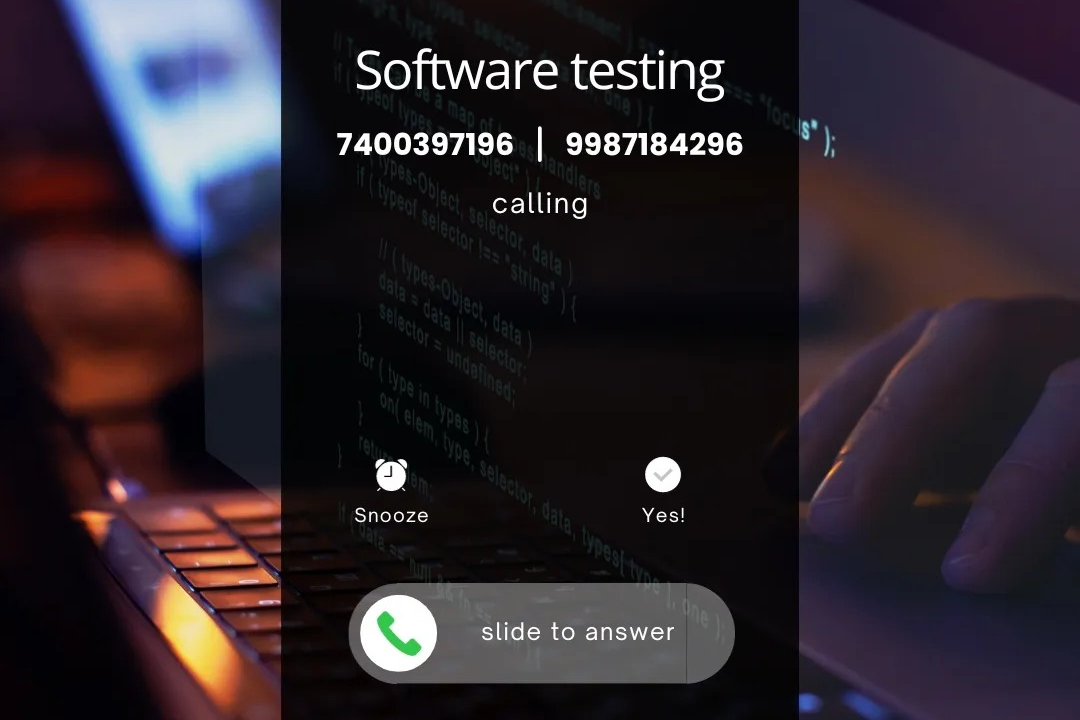Software Testing Course Content
Comprehensive Software Testing Curriculum
Software Testing Course Content
A Software Testing course typically covers fundamental concepts and practices essential for ensuring software quality, including an introduction to software development life cycles (SDLC) and the role of testing within these frameworks. It explores various testing methodologies, such as manual and automated testing, unit testing, integration testing, system testing, and acceptance testing, along with their respective tools and techniques. The curriculum often includes hands-on training with popular testing frameworks and tools (like Selenium, JUnit, and TestNG), as well as instruction on writing effective test cases, bug reporting, and using version control systems. Additionally, participants learn about test management, performance testing, security testing, and best practices for agile environments, culminating in real-world projects to apply their knowledge in practical scenarios.
To Download Our Brochure: https://www.justacademy.co/download-brochure-for-free
Message us for more information: +91 9987184296
1 - Introduction to Software Testing: Overview of software testing, its importance, objectives, and the role of testers in the software development lifecycle.
2) Types of Software Testing: Detailed exploration of various testing types, including manual vs. automated testing, functional vs. non functional testing, white box testing, black box testing, and gray box testing.
3) Software Development Life Cycle (SDLC): Understanding different SDLC models (Waterfall, Agile, V Model, etc.) and how testing fits into each phase.
4) Testing Methodologies: Introduction to various testing methodologies, including manual testing techniques and tools, and insights into when and how to apply them.
5) Test Planning: Learning how to create a test plan, outlining scope, objectives, resources, schedule, and risk assessment related to testing.
6) Test Design Techniques: Overview of different test design techniques, such as boundary value analysis, equivalence partitioning, decision table testing, and state transition testing.
7) Test Case Development: Guidelines on writing effective test cases, including test case formats, execution criteria, and prioritization.
8) Defect Lifecycle Management: Understanding the defect life cycle, from identification to resolution, along with defect reporting tools and best practices.
9) Test Automation Basics: Introduction to test automation, tools available, frameworks, and the benefits of automation in testing.
10) Scripting for Test Automation: Basic scripting techniques required for test automation, covering languages such as Python, Java, or JavaScript, and frameworks like Selenium.
11) Performance Testing: Introduction to performance testing concepts, including load testing, stress testing, and tools like JMeter and LoadRunner.
12) Mobile and Web Application Testing: Specific approaches and strategies for testing mobile applications and websites, including device fragmentation and cross browser testing.
13) Security Testing: Basics of security testing, identification of vulnerabilities, and tools used in security testing (e.g., OWASP ZAP).
14) Continuous Testing in DevOps: Understanding the role of testing in continuous integration/continuous deployment (CI/CD) environments and how to integrate testing into DevOps practices.
15) Reporting and Metrics: Learning how to report test results effectively, analyze testing metrics, and present findings to stakeholders.
16) Soft Skills for Testers: Importance of communication, teamwork, and problem solving skills for software testers in collaborative environments.
17) Industry Best Practices: Overview of industry standards and best practices in software testing (e.g., ISTQB, Agile Testing quadrants).
18) Capstone Project: A final project where students can apply their knowledge and skills in a real world scenario, creating test cases, conducting tests, and reporting results.
19) Interview Preparation: Tips and preparation strategies for software testing job interviews, including common questions and best practices.
This structured content is aimed at equipping students with the necessary skills and knowledge to pursue a career in software testing, ensuring they are well prepared for the industry demands.
Browse our course links : https://www.justacademy.co/all-courses
To Join our FREE DEMO Session: Click Here
Contact Us for more info:
- Message us on Whatsapp: +91 9987184296
- Email id: info@justacademy.co
prince2 foundation training material












